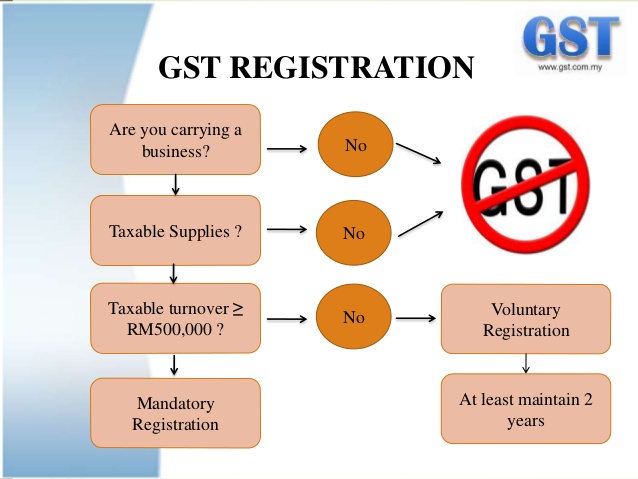Total List for Efficient Singapore GST Registration
Total List for Efficient Singapore GST Registration
Blog Article
The Ultimate Guide to Streamlining the GST Registration Refine and Requirements for Local Business Owners

Comprehending GST Fundamentals
To comprehend the basics of the Goods and Provider Tax (GST) system, small organization owners must initially comprehend its underlying principles and effects. Under the GST routine, companies are required to sign up and collect tax obligation on behalf of the government, making certain transparency and conformity.
One of the key concepts of GST is input tax debt, which enables companies to claim debt for tax obligations paid on their purchases. This system prevents the plunging effect of tax obligations and promotes performance in the tax system. Additionally, GST is a destination-based tax obligation, indicating that the tax is levied at the factor of consumption as opposed to the factor of beginning. This guarantees reasonable distribution of tax obligation earnings among states based on where the services or products are eaten. Understanding these fundamental concepts is essential for small company owners to navigate the intricacies of the GST system and ensure compliance with the legislation.
Eligibility Criteria for Registration
Having actually developed a foundational understanding of GST principles, small company proprietors must now meet certain qualification criteria to proceed with the registration process. In India, entities engaged in the supply of products or services with an annual aggregate turnover surpassing Rs. 40 lakhs (Rs. 10 lakhs for special category states) are required to register for GST. In addition, certain services such as those associated with inter-state supply of items, laid-back taxed persons, and those required to pay tax obligation under the reverse fee system should register for GST regardless of their turn over. Moreover, services that were registered under the previous tax obligation regimen (BARREL, service tax obligation, and so on) are likewise mandated to register under GST. Nonetheless, farming companies that only provide create out of primary manufacturing are exempt from GST enrollment. It is critical for local business owner to carefully evaluate their qualification based upon these requirements to ensure conformity with the legislation and stay her response clear of any type of fines for non-compliance.
Records Required for GST Registration

Simplified Registration Refine Actions
Adhering to the collection and confirmation of the requisite papers, the enrollment process for GST can be navigated via a collection of simplified actions made to help with efficient compliance for tiny business owners. Upon successful confirmation, an Application Reference Number (ARN) is released, indicating the conclusion of the GST enrollment process. By complying with these streamlined steps, little company owners can efficiently sign up for GST and ensure conformity with tax obligation laws.
Tips for Ensuring Compliance
To maintain regulatory adherence and operational honesty, persistent oversight and proactive steps are crucial in making certain conformity with GST demands for small company proprietors. Local business owners must remain upgraded with GST laws, filing target dates, and any type of modifications in official statement tax obligation rates to stay clear of charges and maintain an excellent standing with tax authorities. One vital suggestion for conformity is to keep comprehensive and exact documents of all transactions, including invoices, billings, and costs connected to GST. Frequently resolving financial records with GST returns can aid in determining and remedying any kind of disparities immediately. Furthermore, performing routine inner audits or seeking specialist assistance can make sure that business is adhering to all GST regulations properly. It is additionally vital for local business owners to purchase GST-compliant bookkeeping software program that can enhance the tax obligation declaring procedure and reduce mistakes. Last but not least, going to GST understanding workshops or training programs can boost understanding and compliance with GST laws, ultimately profiting the service in the long run.
Conclusion
In final thought, tiny company proprietors have to understand the essentials of GST, fulfill the qualification requirements, collect needed documents, and comply with the streamlined registration process steps to ensure compliance. By streamlining the GST registration process and demands, small company proprietors can stay clear of charges and run their businesses efficiently within the lawful structure - Singapore GST Registration. It is important for small company owners to stay certified and informed with GST regulations to preserve a successful organization procedure
Small company proprietors seeking GST registration have to ensure they gather and send the needed files to complete the enrollment process efficiently. The documents needed for GST registration normally consist of proof of company enrollment or unification, FRYING PAN (Irreversible Account Number) card of the service entity, address and identity evidence of the promoters/partners/directors, pictures, address proof of the place of company, financial institution account statements or terminated cheques, and consent forms. Attending GST recognition workshops or click here for more training programs can enhance understanding and compliance with GST laws, eventually benefiting the organization in the long run.
By simplifying the GST registration procedure and requirements, small business proprietors can prevent penalties and operate their companies efficiently within the lawful framework. It is crucial for little business proprietors to stay enlightened and compliant with GST policies to preserve an effective service operation.
Report this page